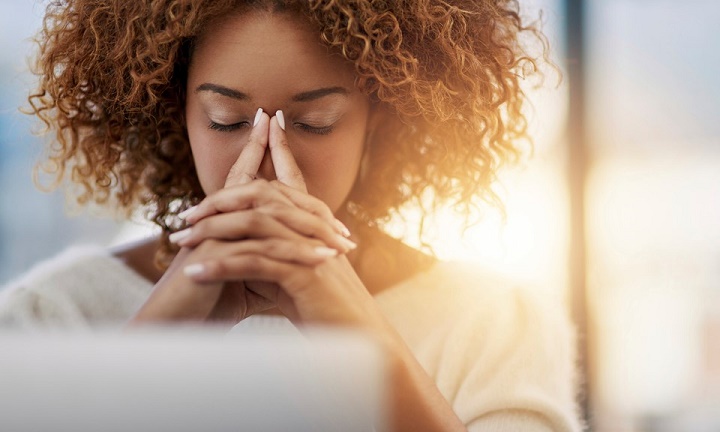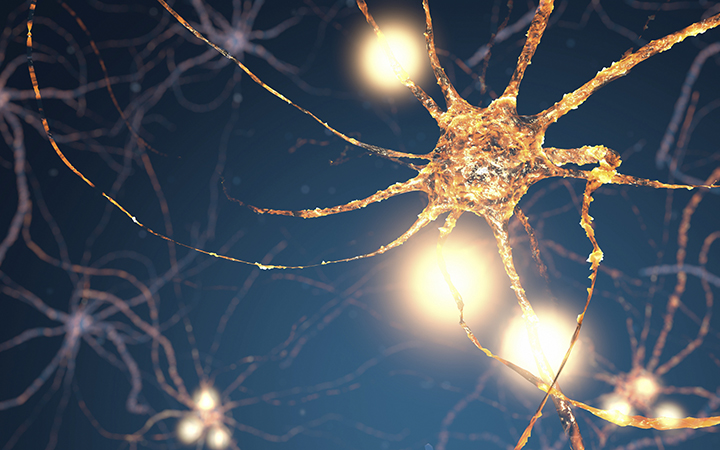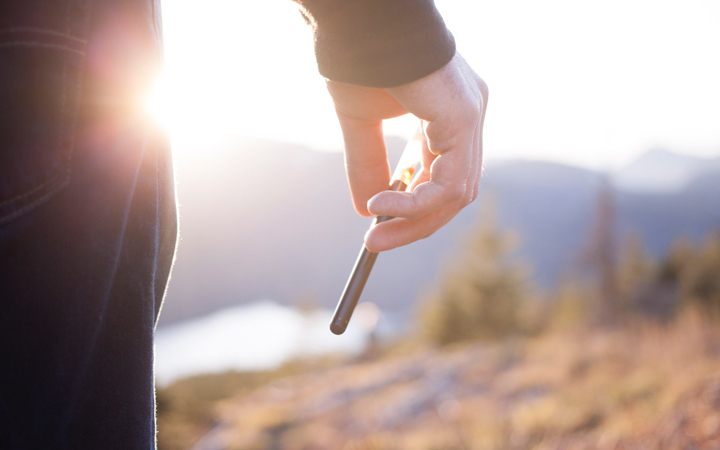Cannabidiol, or CBD, is the compound that occurs in trace amounts in most cannabis varieties and helps fight anxiety. This post from Leafly sheds light on how CBD moderates the anxious side effects of THC and on the surge of high-CBD strains and products.
“If you accidentally consume too much THC and feel anxious or paranoid, counteract it by taking some CBD.” That’s what my budtender told me to do once, and ever since, I’ve wondered to what extent that’s true.
The answer for many people is yes, it can, but with the caveat that there are many factors that can impact how one responds to anxiety and CBD. Some of those variables include:
- The type of CBD product used
- Your unique biology and genetics
- The intensity and nature of anxiety
There are, however, mechanical truths about CBD that might help you understand why it tends to alleviate anxiety whether it was induced by THC or other external stressors.
The Relationship Between THC and CBD
Cannabidiol, better known as CBD, is an excellent anxiety-fighting compound. It occurs in trace amounts in most varieties of cannabis, but recent years have seen a surge of high-CBD strains and products. CBD isn’t psychoactive like THC – when isolated from its THC counterpart, it does not produce the obvious euphoria.
Although THC and CBD are two distinctive compounds, they work together in interesting ways. For example, CBD has been found to enhance THC’s painkilling properties while diminishing the paranoia it can cause.
“CBD interacts with THC in complex ways, diminishing certain effects (the munchies, sleepiness, the high) while augmenting others,” writes Martin A. Lee in his book, Smoke Signals. “Cannabidiol balances the buzz and softens the euphoria – or, in some cases, the dysphoria – induced by THC, which, in concentrated form, can make people feel very loopy and weird. CBD is the yin of THC’s yang.”
You’ve probably experienced this yin-and-yang balance with strains that contain both THC and CBD. Take the Pennywise strain, for example. With a one-to-one ratio of CBD and THC, Pennywise provides milder effects than THC-dominant strains. As one Leafly reviewer put it, “It was a very mellow feeling….no racing heart just calm. No heavy headed feeling either.”
Just last week, I took a THC-packed dab in an attempt to stave off some morning nausea, but I got so foggy headed and anxious, I felt like crawling right back into bed even though it wasn’t even 10 a.m. yet. My to-do list was far too long to lay around waiting for the side effects to pass, so I popped a 10mg CBD capsule and hoped for the best. Within 20 minutes, I was clear-headed enough to tackle cognitively demanding tasks, and the anxiety dissolved soon after.
It makes you wonder: how do CBD’s profound anti-anxiety effects actually work?
CBD and Its Anti-Anxiety Mechanisms
Project CBD, an organization dedicated to the dissemination of CBD information, has compared the chemical to a “dimmer switch.” It has a way of calming excess signaling and activity in the brain’s endocannabinoid system.
Before we get into that, it’s important to understand what that big word means. Also referred to as the ECS, the endocannabinoid system refers to a network of receptors and compounds that bind to them. Think of it like a series of keys and locks. Cannabinoids like THC bind to these receptor sites to induce a variety of effects from euphoria to anxiety. But cannabinoids from cannabis aren’t the only compounds that interact with our system. Our bodies actually produce their own marijuana-like compounds – known as endocannabinoids – that interact with this system. In other words, cannabinoids and endocannabinoids are two different sets of keys that unlock the same locks.
Many conditions and diseases can be characterized by underactive or overactive endocannabinoid systems. PTSD brains, for example, are known to produce insufficient levels of anandamide, a natural endocannabinoid that is structurally similar to THC. Introducing underwhelmed receptor sites with cannabinoids that act like endocannabinoids can, in a sense, correct the deficiency and result in a therapeutic effect.
CBD modulates the receptor signaling associated with THC, which is why their co-presence has become so important in the field of cannabis therapeutics. Relevant to this particular discussion is CBD’s ability to modulate excess cannabinoid activity in the brain, which can result in anxiety. In this way, CBD can certainly mitigate the anxious, paranoid side effects associated with THC overconsumption.
Which CBD Product is Right for You?
If you’re fortunate enough to live in a state with legal cannabis, you have an ever-growing selection of CBD products to choose from. Finding the right one will rely heavily on your unique circumstances, but there are some key ideas to keep in mind while narrowing down your search.
- Lab tested products are the only way to guarantee their cannabinoid content. Without testing, you don’t know how much CBD, THC, or other cannabinoids are present.
- Smoking or vaporizing CBD-rich strains is the fastest way to achieve relief, but keep in mind that these may still contain THC and other cannabinoids. Dabbing a high-CBD oil, for example, may not do much for your anxiety if THC is still present. Pay attention to the THC:CBD ratios of your product.
- Ingestible oils can be a fantastic way to get a more concentrated dose of CBD, and these are my personal favorites for treating anxiety. Keep in mind that CBD capsules can take a lot longer to kick in, as ingested oils are absorbed by the body differently than smoked or vaporized product, which absorb through the bloodstream directly.
Although CBD has demonstrated a high safety margin, always take care when medicating with any of these products. Notify your doctor if you decide to use CBD and consult with medical professionals educated in therapeutic cannabis applications, especially if you’re using CBD in conjunction with other medications.
Source: Can CBD Undo the Anxious Side Effects of THC? | Leafly




